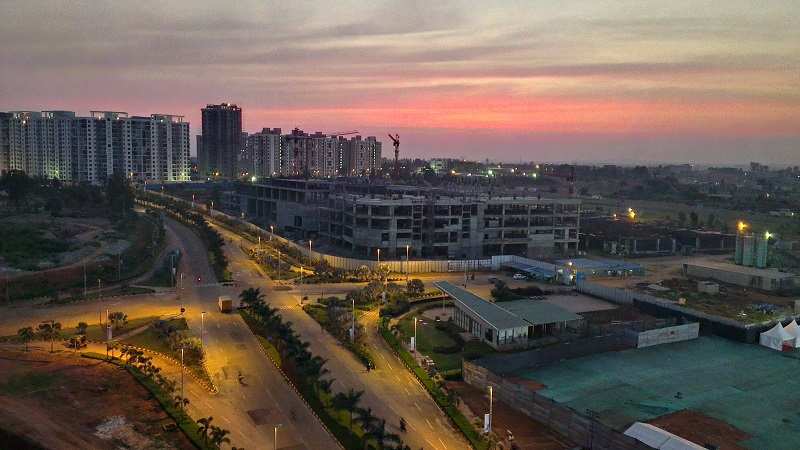Blogs
May
15
2020
COVID-19 Pandemic & Investment
Covid-19 or Coronavirus has hit the world very roughly. Thousands of lives been lost already, Millions of people are infected around the world. And because of this pandemic, the world is facing huge crisis. From various sides, world is going down and collapsing, to recover from this, it will take a lot of efforts and time to heal our Mother Earth.
-
Economic Fall :-
As the whole world is falling apart due to Coronavirus Pandemic, economies of many countries are going down. Currencies around the world has affected as well. Stock Markets has fallen down also during this crisis time.
The Oil War has erupted and the price has gone down and this has put the entire Kingdom of Saudi Arabia at risk. Barrel price was USD 25.29 (as on 13th May, 2020), according to business insiders.com.
In India, situation has worsen, when migrants labourers want to return home due to Covid-19 pandemic. Which created lot of panic and then Govt took control and helping them to reach their destinations.
On the economic view of Indian economy, Economists are forecasting the Indian economy to shrink 0.4% in the year to March as a result of steps to contain the coronavirus pandemic, according to the latest survey by Bloomberg News.
Major companies in India such as Larsen & Toubro, Bharat Forge, UltraTech Cement, Grasim Industries, Aditya Birla Group,BHEL and Tata Motors have temporarily suspended or significantly reduced operations. Young startups have been impacted as funding has fallen.Fast-moving consumer goods companies in the country have significantly reduced operations and are focusing on essentials. Some defense deals have been affected/delayed due to the pandemic, such as the delivery of Dassault Rafale fighter jets. Stock markets in India posted their worst loses in history on 23 March 2020. However, on 25 March, one day after a complete 21-day lockdown was announced by the Prime Minister, SENSEX and NIFTY posted their biggest gains in 11 years, adding a value of ?4.7 lakh crore (US$66 billion) crore to investor wealth.
The Indian economy was expected to lose over ?32,000 crore (US$4.5 billion) every day during the first 21-days of complete lockdown, which was declared following the coronavirus outbreak. Under complete lockdown, less than a quarter of India's $2.8 trillion economic movement was functional. Up to 53% of businesses in the country were projected to be significantly affected.
-
Real Estate :-
Real Estate is one of the major sector which is going to be the one of the hardest hit sectors in the world as well as in India.
Due to Covid-19, Work from home has becoming a new culture to mainatain social distancing while work flow will not be disturbed. Post Covid-19 world will be lot more different than today as its putting a question mark on work-spaces in a post Covid world.
Builders are looking for new designs of homes (according to thehindu.com), where 2.5 BHK will be the new trend while 0.5 out of 2.5 BHK will be used as office space for Work from home culture.
-
Investment :-
As investment options are shrinking, here's the best option for Better ROI (Return on Investment) is currently the Long-term investment options. One of them being the Invest in LANDS or PLOTS. The only reason to invest in PLOTS & LANDS is, in India Lands price is going higher than before, as the cities get crowded, its better to invest where the new Hubs are coming up. As Bangalore city is already crowded, one should be wise to invest in outskirt as the city expands itself, it will automatically increase the price of the PLOT or LAND you would buy today.
The piece of land or plot one buys today, after 10 years from now, this Land value will be much higher than today's buying price. As city will expand, Govt. will come up with new Road Maps and highways along the place, which will automatically double up your investment. As the days pass by the new offices and factories will be build to maintain the balance of the economy. In the end, the investment in land or plot will give you higher return on longer run than anyother investment.
Always keep in mind, Land Value will always grow more and price will be higher than before, so its spaces shrink, the asking rate will always go up. So it will be very intellectual to invest in Lands / Plots today for a better tomorrow.
STAY HOME, STAY SAFE.
Covid Live Update (By Google News) :- https://news.google.com/covid19/map?hl=en-IN&gl=IN&ceid=IN:en
Novel Coronavirus Update (By WHO, World health Organization):- https://www.who.int/emergencies/diseases/novel-coronavirus-2019/events-as-they-happen
Mar
04
2020
DEVELOPMENT AROUND DEVANAHALLI and How It can be fruitful for Investment.
Bengaluru will be the fastest growing city in the world for the next 15 years as its GDP is projected to grow at 8.5 per cent until 2035, according to the Bengaluru Innovation Report 2019.
In terms of technology and new businesses,so called Start Ups, Bengaluru is way more ahead in the race.
- Most Millennial-friendly City :-
According to the report, Bengaluru is India’s most millennial-friendly city with the highest employability rate in the country. It ranks 18th in this category among cities in Asia. It is also the first choice for women in employability. It has a major demographic dividend with 37% of the city’s population between 15-35 years of age, the report states.
- Digital Savvy City :-
Bengaluru’s consumer economy is the most digitally savvy in India with a digital spend of Rs 8,600 per person per month in the city. The report stated that 38.1% of all UPI transactions in Tier 1 cities originated in Bengaluru as of October 2019.
Consumers in Bengaluru also had the highest preference for online shopping, followed by Mumbai and Delhi. In Bengaluru, 69% of the people surveyed showed a willingness to buy products online compared to 65% in Mumbai and 61% in Delhi.
About DEVANAHALLI :-
Devanahalli, a suburb located in North Bangalore is one of the emerging real estate destinations of choice. Popularly known as the birthplace of Tipu Sultan, it is now better known as the location of the newly built Kempegowda International Airport. Devanahalli is also developing as an industrial and technology hotspot. Let’s look at why homebuyers are attracted to Devanahalli.
Location & Connectivity
Devanahalli enjoys excellent connectivity to the main city centres via the NH-7 or the Bellary Road which has been widened to a 6 lane highway, thus ensuring better and efficient flow of traffic. The Bangalore Metropolitan Transport Corporation [BMTC] buses operate a regular service, catering to the ever-increasing demand of public transport. It has major transport nodes located at easily accessible distances. The international standard airport located here is the second busiest airport in the country, with flights to various cities all across the country and the world. Devanahalli is also well-connected to the nearby suburb of Yelahanka, and Bangalore City by railway.
Upcoming Transport Infrastructure
Devanahalli’s multi-modal transport connectivity is set to receive a boost with future infrastructure developments. The suburb has been included in the construction of Phase 2 of the Namma Metro network which will connect the Airport to central Bangalore and thus Devanahalli as well. The proposed Peripheral Ring Road (PRR), which will complement the existing routes of NICE and ORR, will connect the outer suburbs of Bangalore and major roads like OMR and Bellary Road. This will enhance connectivity between Devanahalli and the rest of Bangalore.
Social Infrastructure
Devanahalli benefits from a well-established social infrastructure such as schools, hospitals and recreational spaces. Some notable schools in this area are NPS School, Delhi Public School, Akash International School and Canadian International School. The healthcare options available to residents include Leena Multispecialty Hospital, Akash Hospital and Cyte Care Cancer Hospital. This suburb also has a D-Mart outlet as well as numerous convenience stores to meet residents’ daily needs. Devanahalli is also a popular tourist destination due to the many temples and the Devanahalli fort.
Industrial and IT Hub
The relative affordability of land in Devanahalli, as compared to many other suburbs in Bangalore, has made it a focus area for real estate and infrastructure development. This includes some of the biggest projects already operational here such as IT Investment Region [ITIR] and the Aerospace SEZ, making them employment attractions. Some big companies which have been set up in the Aerospace SEZ are Thyssenkrupp Aviation, BEML, Dynamatic and Centum Electronics.
Popular IT companies such as TCS, Infosys and Wipro are expected to set up base in the Devanahalli ITIR. Companies such as Shell already have a significant presence in this area. Also, an upcoming Science Park as well as a Financial City, is expected to compete with India’s financial capital Mumbai and the Gujarat International Finance Tec-City in Gandhinagar. This, proximity to industrial clusters and IT Hubs, is another key attraction of Devanahalli.
So, if you look closely, investing in Devanahalli is far more better. Invest in Sites/Plots, as a growing city, Devanahalli will be developed soon. And because of this expansion, automatically the LAND VALUE what you have invested will be up by few folds before you know.
Explore More: Lotus Value Developers/Nature-Park-in-Devanahalli
Jan
13
2020
How North Bangalore is growing for investment ?
Bangalore is the so called IT-Hub of India also known as Silicon Valley of India. Investing in Bangalore will never put you down.
If you see properly, in Bengaluru IT-Hub is expanding and these expansions are forcing to shrink the lands and sites inside city space.Now the only option you have to invest in plots/sites are the empty spaces in outskirts of Bengaluru.
North Bengaluru is the next hot destination to invest your money for longer term scenario, where you can get a handsome returns after few years.
Not to forget, Investing in plots/sites/lands will never get you less money in returns than what you have invested for purchasing the same.
Now the main question arise here that, why should one invest in plots in North Bangalore, why not elsewhere ?
To answer your question, you should know below facts that is actually improve your knowledge about North Bangalore.
- Places like Hebbal,Jakkur,Devanahalli, Jalahalli East these all are some of the few places comes under North side of Bengaluru.
Now whenever you are investing, one must evaluate the area on how much it will develop in coming years to give them a good return on investment (ROI).
Some of the Key Highlights are as follows:-
- Devanahalli Business Park, which will attract $2.2 Billion investment in coming years.
- Bangalore Aero-space SEZ, 950 Acre of Aerospace Park has already attaracted investment from mmore than 50 Small and Medium--sized companies.
- BIAL IT Investment Region (ITIR), which has already attracted various big names like Wipro,TCS, Cognizant etc over its 12000 acre dedicated land for BIAL ITIR.
- Bangalore International Convention Center, which will be built next to Bangalore International Airport on 35 Acre of land through public-private-partnership(PPP model).
- Disney Land Theme Park, to boost the Karnataka Tourism.
Now apart from all the above mentioned stuff, you should consider that Bangalore, the Silicon valley of India is growing rapidly at a faster pace. investing in Plots/Lands/Sites can get you higher returns than any of your other investments,which are also risky and you have to monitor.
In terms of plots, one can stay low, in terms of risks and meanwhile you can build your own dream house or you can sell it at a higher price, to someone else, depending on that future market scenario.
More over all these you are getting Land Availability and more Communications (Like:- BIAL, Proposed Metro).
By analyzing these all facts, you can understand why you really need to invest in North Bangalore, not elsewhere.
Jun
30
2018
Top 10 Asian cities for real estate investments in 2017
1) Bangalore, India (Ranked 12th last year)
The big story for investors in Bangalore has long been the city’s role as India’s main hub for the business process outsourcing (BPO) and, more recently, IT industries, which have driven huge demand for new space as domestic and international companies flock to open both call-in and research-and-development (R&D) centers.
2) Mumbai, India (Ranked 13th last year)
Historically, geographical constraints have prevented easy expansion of Mumbai’s metropolitan area, which has made it both the most expensive city in India and the slowest growing. As a result, the local government has committed itself to a major road and rail infrastructure program that will allow easier access to the city center from outlying areas, with most construction scheduled for completion before 2019.
3) Manila, Philippines (Ranked 8th last year)
The Philippines has attracted positive comment for the last several editions of this report, with a vibrant economy led by a booming BPO market and strong remittances from overseas workers. Today, the fundamentals appear as strong as ever
4) Ho Chi Minh City, Vietnam (Ranked last year)
After several years in the economic doldrums, Vietnam is today one of the fastest-growing economies in Southeast Asia. It is now “on the radar screen of nearly all the major investors in the region,” and is probably the most popular real estate investment destination in Southeast Asia.
5) Shenzhen, China (Ranked 18th last year)
The major recent talking point for Shenzhen, in southeastern China, has been its residential sector, where prices have soared more than 40% year-on-year in the first three quarters of 2016—the fastest in the world.
6) Shanghai, China (Ranked 9th last year)
Described by one fund manager as “Manhattan on steroids,” Shanghai continues to be the major draw in China for foreign core investors, offering fast growth, relatively low levels of bureaucracy, a liquid market with an abundance of financial sector tenants, and a critical mass of foreign and domestic businesses already in residence.
7) Jakarta, Indonesia (Ranked 6th last year)
The Indonesia's capital city has proved to be a popular choice in the survey for the last five years, and while investors have always found it a difficult market in which to place money, prices for office assets have performed exceptionally well over that period. That has recently changed, however, amid a huge pipeline of new supply, combined with ongoing weak demand from tenants in the commodities sector.
8) Bangkok, Thailand (Ranked 19th last year)
Rents and (especially) capital values have risen steadily over the last five years in the Thailand’s capital city and will probably offer good long-term prospects in line with the Thai economy’s overall growth trajectory.
9) Sydney, Australia (Ranked 2nd last year)
New South Wales capital city's fall from second in last year’s rankings to ninth in 2017 is surprising given its undoubted popularity among core investors in interviews, and is probably because, as one fund manager said, “the amount of capital out there looking for opportunities vastly outnumbers the amount of opportunities available” in what has become a very crowded market
10) Guangzhou, China (Ranked 20th last year)
Counted as one of China’s four first-tier cities, its inclusion in government plans to improve integration in the greater Pearl River Delta area will see better transportation networks to connect it with areas on both the east and west of the delta and should improve long-term demand in the real estate sector, especially in southern parts of the city.
Source From
https://realty.economictimes.indiatimes.com/
Jun
30
2018
Indian real estate transparency improves on reforms, ranked 35th globally: Survey
MUMBAI: Series of policy initiatives and reforms are prompting improvement in transparency level in Indian real estate sector that has long remained opaque. Several measures including implementation of Real Estate (Regulation & Development) Act, 2016, land title insurance, the Benami Transactions (Prohibition) Amendment Act, aligning the sector with the Goods & Services Tax, demonetization, opening up of Real Estate Investment Trusts (REITs) have influenced India’s ranking in global real estate transparency.
India has emerged as one of the top 10 countries to have registered maximum improvement in transparency in real estate over last two years, showed JLL’s Global Real Estate Transparency Index (GRETI) 2018. The country’s performance over last two cycles of JLL’s GRETI indicates that it has moved up by five places to 35 since 2014 out of 100 countries that are mapped to over 180 parameters
India’s remarkable improvement in the transparency scores across all markets has started to benefit the nation in the form of increased volumes of international capital being deployed into the country. Improved market fundamentals, policy reforms and liberalisation of FDI into realty sector and retail and strengthening of information in public domain were main influencers, along with digitisation of property records and assigning “industry status” to affordable housing,” said Ramesh Nair, CEO, JLL India.
Private equity investments into property sector is one of the key indicators of the confidence of the investor community and the confidence is closely linked with the transparency of the property markets
In India’s case, the rise in private equity over these years reflects the growing confidence and comfort of the global funds. Private equity investment in Indian realty has grown in every year from $2.2 billion in 2014 to $4.7 billion in 2015, to $6.9 billion in 2016 and it was $6.3 billion in 2017.
Institutional investors’ confidence in Indian real estate is on the rise. Discussions about investing here are more optimistic not only in terms of returns but also based on environment which is getting more conducive for businesses,” said Rubi Arya, vice chairperson, Milestone Capital Advisors.
Compared to similar market sized countries that are also part of the same ‘semi-transparent’ group; India’s marked improvement is unmatched by its peers. Among BRICS Countries both China and South Africa remained on the same rank of 33rd and 21st, respectively as in 2016 assessment, Brazil slipped to 37th and Russia remained confined to 38th rank.
Nair believes India’s ranking is expected to improve further on the back of the comprehensive implementation of the RERA in all states of India, introduction of insurance policies for land title insurance, pseudo-ownership of properties weeded out through Benami Transactions Act and the Goods and Service Tax (GST) regime
The index measures transparency by looking at factors including data availability its authenticity and accuracy; governance- of public agencies as well as stakeholders of the realty sector; transaction processes and costs associated with those; and the regulatory and legal environment.
Source From
https://realty.economictimes.indiatimes.com/
About Lotus Value
Lotus value is a well established land developer company in Bangalore, Karnataka. We showcase a rich experience in land development for both residential and commercial purposes. We have successfully completed projects of varied strengths and catered to a broad range of likes and purposes. We confidently believe to take advantage of the greater than before need for excellence in real estate sector.
Contact us
Lotus Value
#2112, 3rd Floor, 9th Main,
15th Cross, 'D' Block,
Sahakar Nagar, Bengaluru - 560092.
info@lotusvaluedevelopers.com
(+91) 7676250000
(+91) 7676730000
Quick links
Copyright © 2017 Lotus Value. All right reserved.





